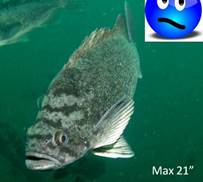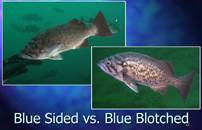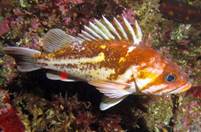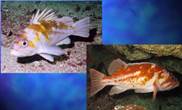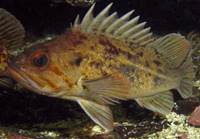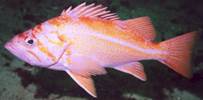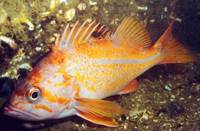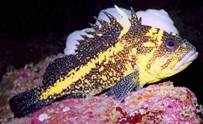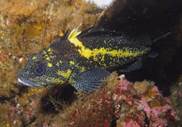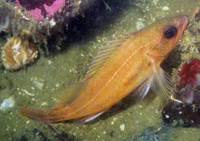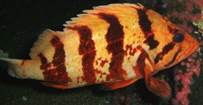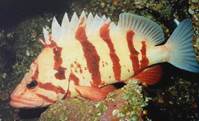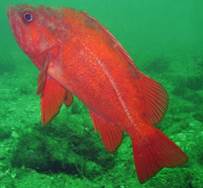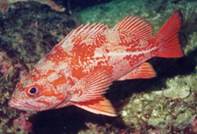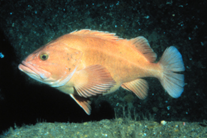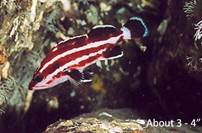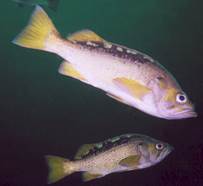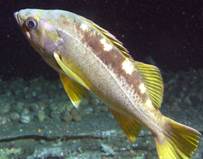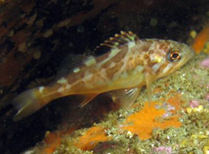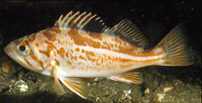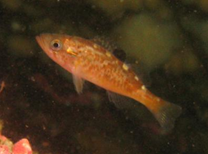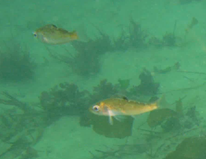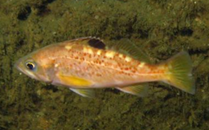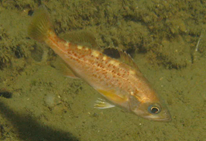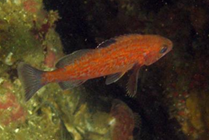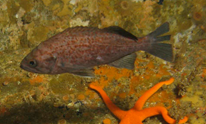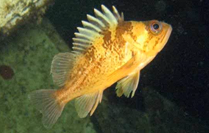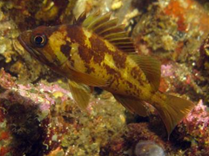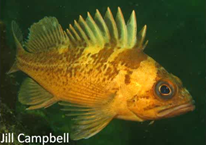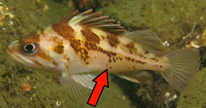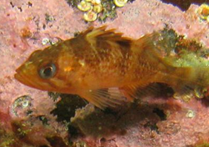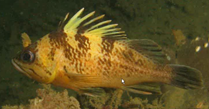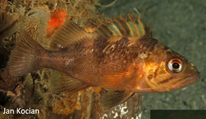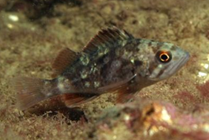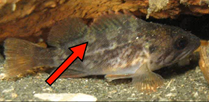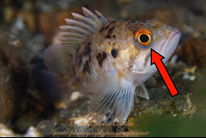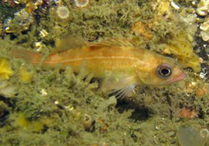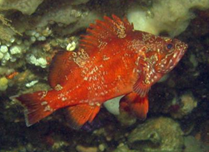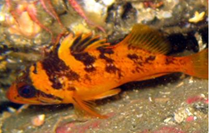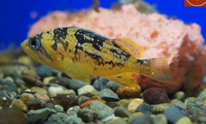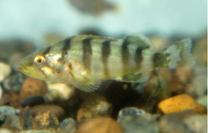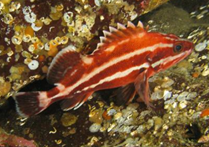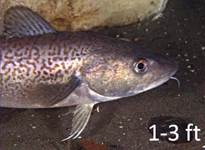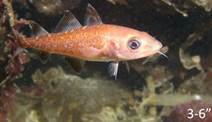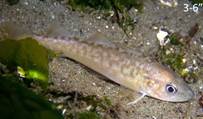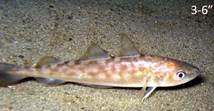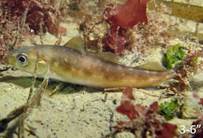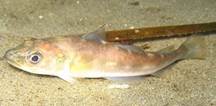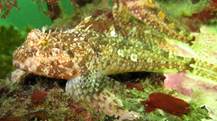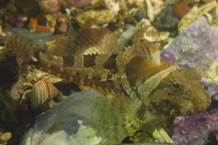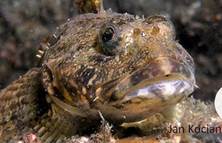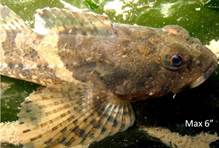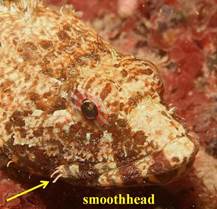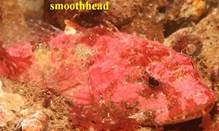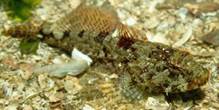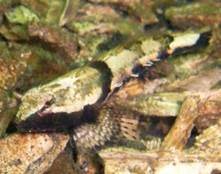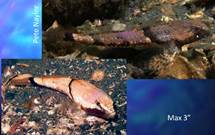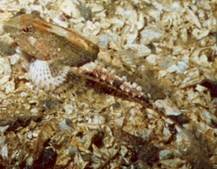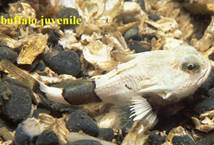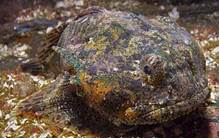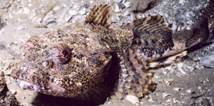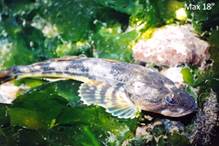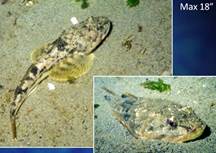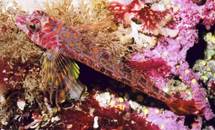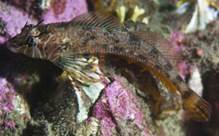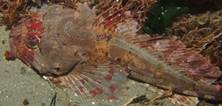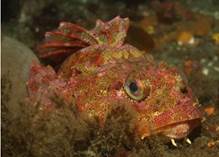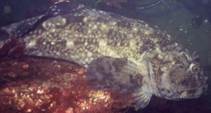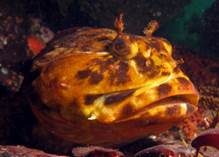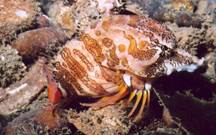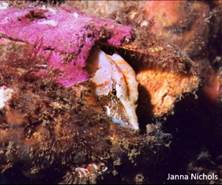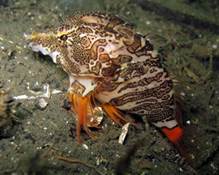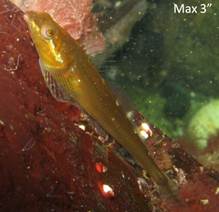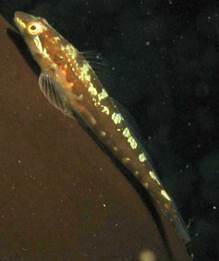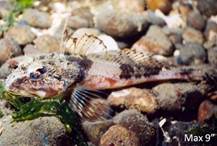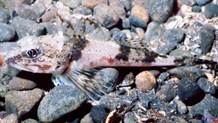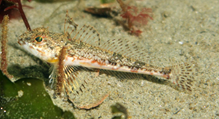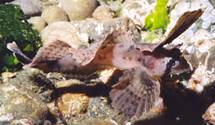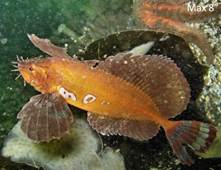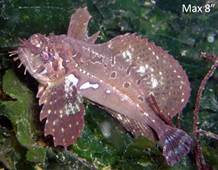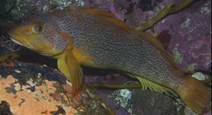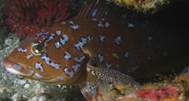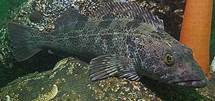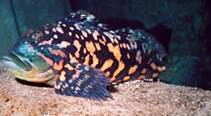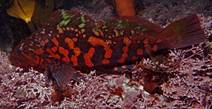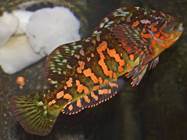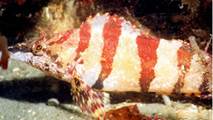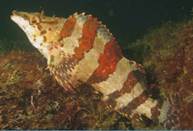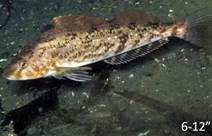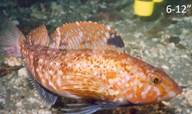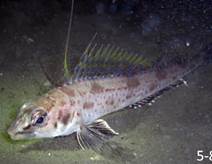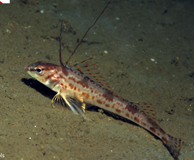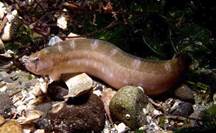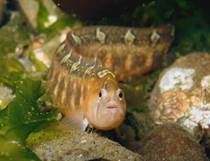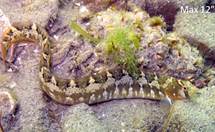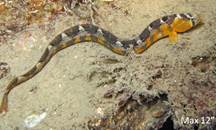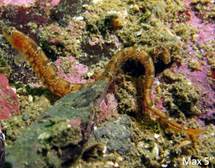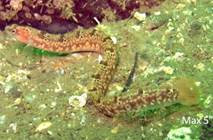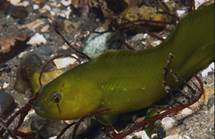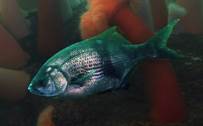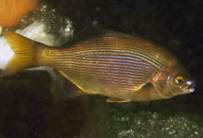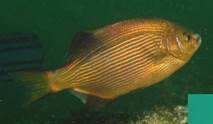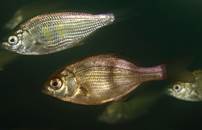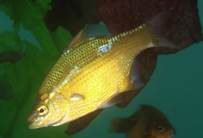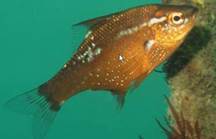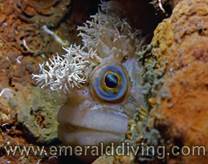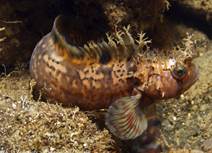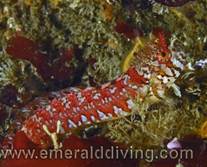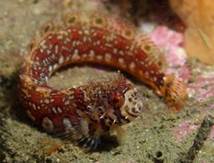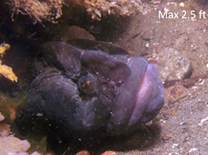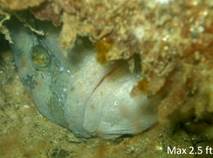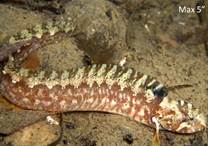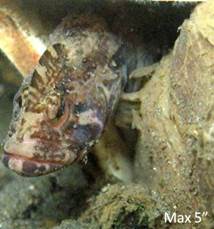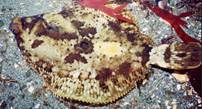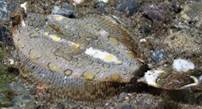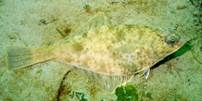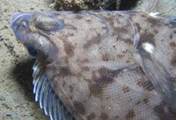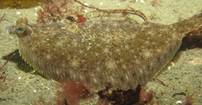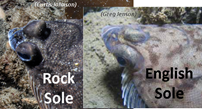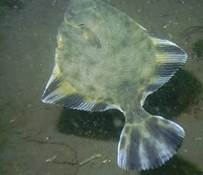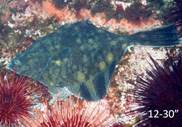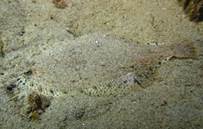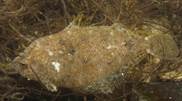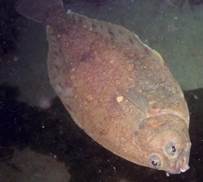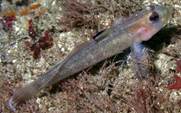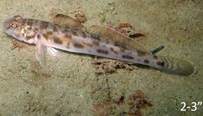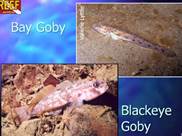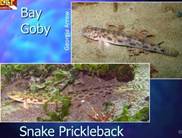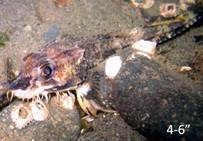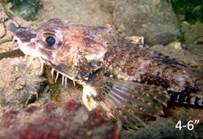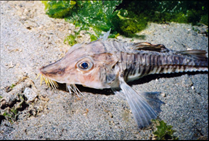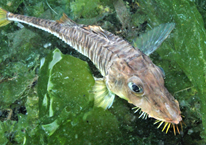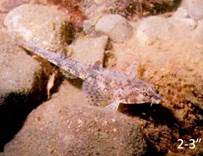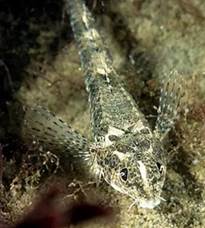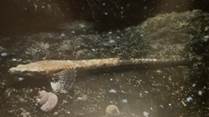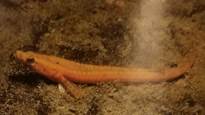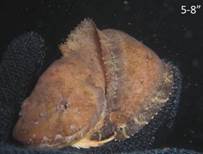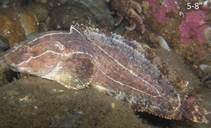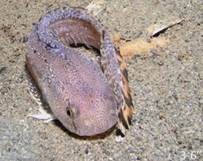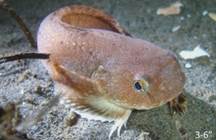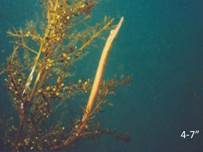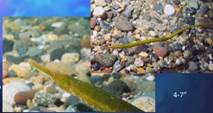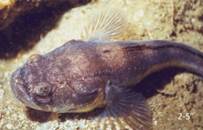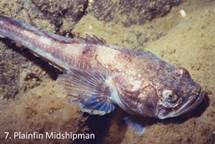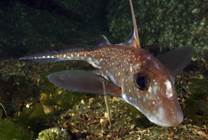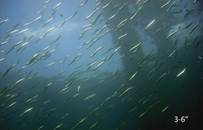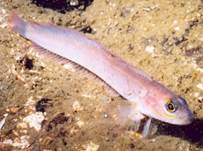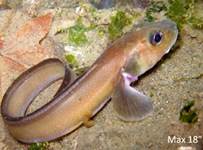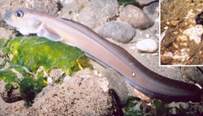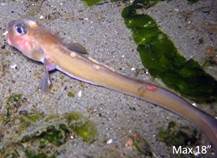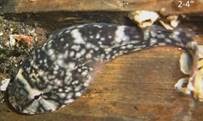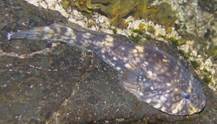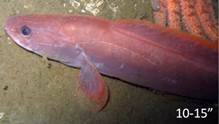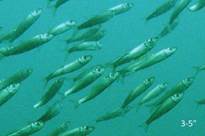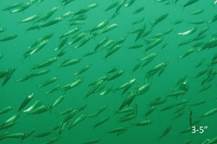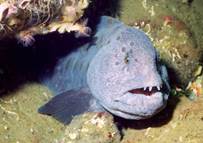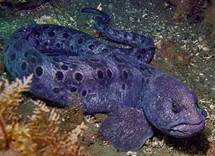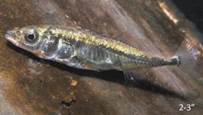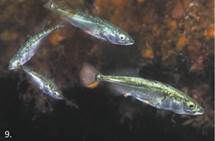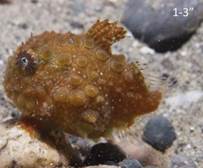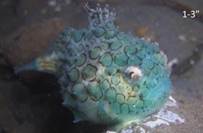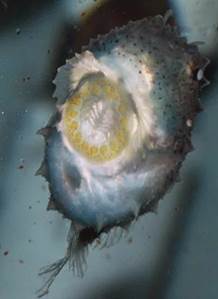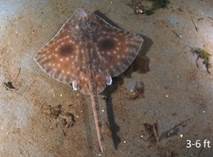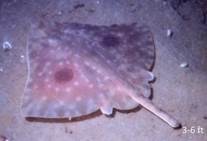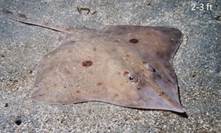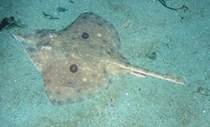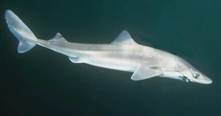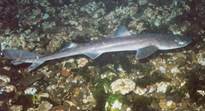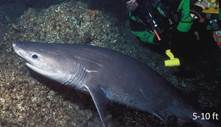PNW Fish List
Contents
YoY Deacon
Rockfish (blue rockfish)
Bay
Pipefish – Pipefish Family
Plainfin
Midshipman – Toadfish Family
Spotted
Ratfish - Chimaera Family
Pacific
Sandlance - Sandlance Family
Northern
Ronquil - Ronquil Family
Blackbelly
Eelpout - Eelpout Family
Northern
Clingfish - Clingfish Family
Pacific
Herring - Herring Family
Threespine
Stickleback - Stickleback Famil
Pacific
Spiny Lumpsucker - Lumpsucker Family
Spiny
Dogfish - Dogfish Shark Family.
Bluntnose
Sixgill Shark - Cow Shark Family
Handy resources
http://www.reef.org/cheatsheets (pics, lists, flashcards)
WA Fishing Guide: https://wdfw.wa.gov/publications/01914/wdfw01914.pdf
WA frequency data: http://www.reef.org/db/reports/geo/PAC/2/2007-01-01/2017-12-31/1/chart/common
Excellent ID pictures: http://emeralddiving.com/id_intro.html
Cheat sheets: http://www.reef.org/cheatsheets
Canada’s central coast
biodiversity: https://www.centralcoastbiodiversity.org/fish.html / https://vimeo.com/hakai
Peaceco :
another fish survey project in monterey
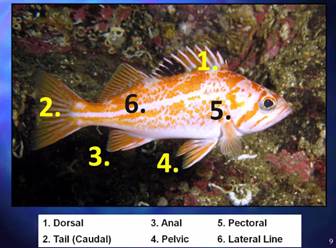
Fish
Rockfish/Scorpionfish Family
|
Common Name |
Description |
Image 1 |
Image 2 |
Other |
Blue
Rockfish
|
Memory
aid: Blue rockfish are always “feeling blue”. Has
multiple tear streaks across eyes where the black rockfish does not. Similar to
black rockfish except for tear streaks and the blue rockfish more likely to
have dark patches across entire body There are actually two
species: Deacon
Rockfish / Blue sided rockfish ·
Lots of evenly distributed speckles ·
More elongated Blue
blotched ·
larger and less consistent blotches |
|
|
SF: 1.4% | DEN: 2.4 basic |
Black
Rockfish
|
Like
a yellowtail rockfish without the yellow. Schooling rockfish (just like yellowtail).
Transitory. also known variously as the black seaperch,
black bass, black rock cod, sea bass, black snapper
and Pacific Ocean perch. |
|
|
SF: 37.8% | DEN: 2.5 Adv On survey |
Copper
Rockfish
|
Light lateral line on back half Light
underbelly Light
colored fins Copper lower lip (sometimes?) Most commonly seen fish in nw Very
similar to china rockfish (which has dark fins) |
|
|
SF:
68.9% | DEN: 2.3 Adv On
survey |
Brown
Rockfish
|
Orange
tinted eye Brown spot at top of gill level with eye Mostly
brown Medium/lighter colored fins Lateral line No particular pattern
to blotches except for spot by gills |
|
|
Adv SF: 47.9% | DEN: 2.3 On survey |
Canary
Rockfish
|
Has
sharp (beak like) anal & dorsal fins Sometimes black spot on
base of dorsal fin Confused with vermilion rockfish (which is more
red and sometimes black outline on tailfin) Lacks the darker areas that the copper rockfish
has |
|
|
SF: 1.9% | DEN: 2.3 adv |
China
Rockfish
|
Has
a yellow swoosh band (like Nike’s which are made in China) which starts at
and includes the 2nd/3rd spine Also has white speckled dots on black areas
(unlike quillback). |
|
|
SF: 4.9% | DEN: 2 Adv On survey |
Puget
Sound Rockfish
|
Black
(mascara-like) eyes. Has small white lateral line and darker “scum like”
line below lateral line (sort of like scum line on Puget sound boats) Generally, one of the smallest rockfish |
|
|
SF: 16.3% | DEN: 2.6 Adv On survey |
Quillback
Rockfish
|
Back
half of fish (or sometimes just rear fins) is completely dark/black (like
inkwell). Very pronouenced quils
(like a quill pen!) |
|
|
SF: 35.3% | DEN: 1.9 Adv On survey |
Tiger
Rockfish
|
Bars
don’t quite go through the spines. No bands on pectoral fins. Rockfish has wide lips and no cirai (painted greenling has narrow snout and no cirai). Also called tiger seaperch, banded rockfish and
black-banded rockfish. Scientists have dated some fish to be up to 166
years old. It is very vulnerable, with a minimum population doubling time of
14 years wiki |
|
|
SF: 2.6% | DEN: 1.6 adv |
Vermilion
Rockfish
|
Black
edgeing on tail Rounded dorsal/anal fin Canary rockfish are more yellow/orange Less transitory |
|
Juvinile
coloring |
SF: 8.3% | DEN: 1.8 Adv On survey |
Yelloweye
Rockfish
|
Called
red snapper in the 1970s eventually overfished and added to endangered
species list. Usually stays deep except in low O2 conditions Requested to report Yoy
separately under
unlisted section |
Credit:
wikipedia/NURP |
Juvinile
yeloweye |
SF: 0.7% | DEN: 1.3 basic |
Yellowtail
Rockfish
|
Yellow
tail & fins Has convex (surface curves outward) space
between the eyes Usually
darker areas on top of fish (not on bottom) Is a schooling rockfish |
|
|
SF: 11% | DEN: 2.3 Adv On survey |
YoY Rockfish (young of the year)
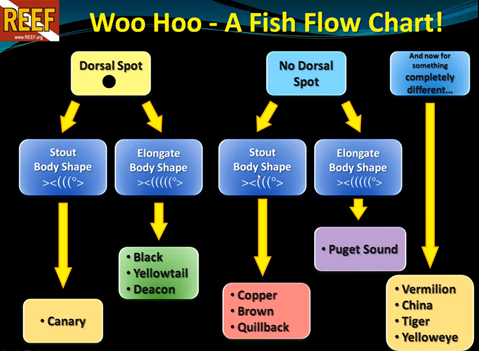
YoY Canary Rockfish
|
Black, distinct dorsal spot. Look
for the dark Y or V shape on the body, that extends onto the dorsal. Left
part of Y is the dorsal spot. White hole in the center. Stout
body shape. Sometimes
the start of the white lateral line is present. Yellow lines from eyes. Hangs
out near the bottom, close to boulders. |
Photo
by Janna Nichols |
Photo
by Janna Nichols |
|
YoY Black Rockfish
|
Black dorsal spot pretty
distinct Elongate
body shape Overall
brown coloration Fins
clear White
splotches below dorsal |
Photo
by Janna Nichols |
|
|
YoY Yellowtail Rockfish
|
Black dorsal spot pretty
distinct Elongate
body shape White
splotches below dorsal fin Look
for yellow tints to tail and pectoral fins Some
speckling can be present Very
thin lateral line |
Photo
by Janna Nichols |
|
|
YoY Deacon Rockfish (blue
rockfish)
|
Black dorsal spot pretty
distinct, but may not be present Elongate
body shape always Reddish
orange spots all over. Fins
are a bluish-gray color |
Photo
by Janna Nichols |
|
|
YoY Copper Rockfish
|
Stout body shape |
Photos
by Janna Nichols |
Bottom
photo by Janna Nichols |
|
YoY Quillback Rockfish
|
Fins can be clearish
but darken as they get older Stout
body shape Dark
patches that extend onto dorsal fin Light
speckles all over body Distinct
light patch near front of spiny dorsal After
posting pics of either yoy
copper/quillback Janna replied quillback citing “Dark back half of fish. Dark
speckles. And Dusky to dark fins = Quillback” |
Photo
by Janna Nichols |
|
|
YoY Brown Rockfish
|
White
ocellated spots under dorsal and along dorsal Yellow-orange eye Stout body shape Brown spot on gill cover |
Photos by Janna Nichols |
Photo by Drew Collins |
|
YoY Puget Sound Rockfish
|
Look just like little adults Longer
body shape. Dark
eye Fairly
uniform brown Very
thin visible lateral line You
can see scales if you look closely |
Photo
by Janna Nichols |
|
|
YoY Vermilion Rockfish
|
Stout body shape When
they’re really young, the tail is clear. Red and silver-gray
mottled, with dark edges
to their fins |
Photo
by Janna Nichols |
|
|
YoY China Rockfish
|
Stout body shape. Yellow
orange base color, with some dark markings |
Photo by Rhoda Green |
Photo by Jeff Christiansen |
|
YoY Tiger Rockfish
|
Stout body shape. Whitish-cream
base color, with unmistakable red bars, which are much thinner in juveniles.
Extremely secretive |
Photo by Jeff Christiansen |
|
|
YoY Yelloweye Rockfish
|
Dark red (sometimes almost black) to red in
color, white stripes and white edges to
its fins. Usually found in cracks and crevices, deeper than 70 feet |
Photo
by Janna Nichols |
|
|
Cod Family
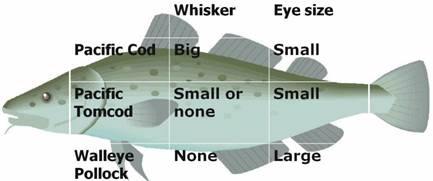
|
Common Name |
Description |
Image 1 |
Image 2 |
Other |
Pacific
Cod
|
Pronounced whisker, “maze” of white spots Typical
cod 3 dosal fins To
114 cm (3.7 ft) in length, and 22.7 kg (50 lbs) in
weight. usually found near the bottom at water depths of 12 to 549 m
(40-1,800 ft) |
|
juvenile |
SF 0.3% Basic Not
on survey |
Pacific
Tomcod
|
Tiny or no whisker Typical
cod 3 dosal fins |
|
|
SF 0.7% Not
on survey |
Walleye
Pollock
|
Big eye (per name) No
whisker Blurry
blotches on body |
|
|
SF 0.6% Not
on survey |
Sculpin
Family
Sculpins’s change color and texture based on environment (chameleon). Identification is by structural features
|
Common
Name |
Description |
Image 1 |
Image 2 |
Other |
Scalyhead Sculpin
|
Known as the Scalyhead
sculpin or Plumose sculpin. Orange gills and round white circles on bottom.
2-4” white
dot before tail,
cirrus by crook of mouth and along lateral line. 3 reddish (but not dark
brown!) lines through light colored eye. Male
have branched cirai on top of head. Females have
5-7 bands/saddles. Confused with
padded sculpin ·
Padded single cirai by mouth ·
Sometimes white
dot before tail ·
fewer and darker
lines in eye ·
gills aren’t
orange |
|
|
SF:
48.7% | DEN: 2 On
survey |
Padded Sculpin
|
Always single cirai
in corner of mouth. No cirai on head. Prominent
large nostrils and nostril spines between eyes (although sometimes hard to
see because of color patterns) Patches
of large scales between back and lateral line reminiscing of (mesh?) pads. These
scales larger than scalyhead but hard to see. Confused
with scalyhead sculpin which has multiple cirai by mouth, white dot before tail, and orangish gills |
|
|
SF:
7.2% | DEN: 1.7 Not
on survey |
Smoothhead Sculpin
|
2-3 cirai at corner
of mouth (unusually thick) Smooth
forhead in front of eyes (namesake) Longer
snout than scalyhead No
branched cirai behind eye Sometimes
cirai above/behind eye At
the back of its body right in front of the tail are two semi
circular light saddles, almost touching each other Can
have white dot before tail like scalyhead Confused
with scalyhead and padded |
|
|
SF: 2% | DEN:
1.5
Not
on survey |
Spinynose Sculpin
|
Black band behind pectoral fin often with a few
blue scales at back of black band. Looks
like it has a “five oclock shadow”. Small, up to
3”. Often hard to see nasal spines. |
|
|
SF: 4.4% | DEN:
1.6
Not
on survey |
Buffalo
Sculpin
|
Long
horns that tuck in on either side of head Wide
black bands on tail Very
large, rounded head with small eyes. Mouth
doesn’t extend past the eye transitory 10-14” |
|
|
SF: 23.6% | DEN: 1.8 On survey |
Great
Sculpin
|
No cirai Big
mouth goes back past eye Top
lip goes over top of bottom lip Small ridgers behind
each eye Warty things on the top and sides of head transitory |
|
|
SF:
8.1% | DEN: 1.4 Not
on survey |
Pacific Staghorn Sculpin
|
Unique pectoral fin that aligns lengthwise with
body rather than up and down Thin
horizontal line along body Flat
head profile. no cirai / no decorations at all Weird
scale on side of head is namesake (staghorn) Does
not have scar-like photophore buttons alike midshipman (toadfish) |
|
|
SF:
4.2% | DEN: 1.5 Not
on survey |
Longfin
Sculpin
|
Named
for its long anal fin. Slender body Several
stripes around (mostly under) eye |
|
|
SF: 24.3% | DEN: 2 On survey |
Red
Irish Lord
|
Has freckle in
eye Cirai on side of
mouth, chin, and head ~3
rows rows of scales around dorsal (almost like
horseshoe around dorsal) Great
at camouflaging, usually in reds, pinks and reddish
brown. Speckles throughout, even on eye membranes. Rough rows of scales near
dorsal, wrap around front and back on other side. Multiple tabs and cirri
around mouth Impossibly
similar to brown irish
lords (different number of scales above/below lat
line |
|
|
SF:
19.4% | DEN: 1.5 On
survey |
Cabezon
|
Two
forked cirai on top of head. Big - can be up to 2-3 ft long Pink eggs Spanish for “big head” |
|
|
SF: 8% | DEN: 1.5 On survey |
Grunt
Sculpin
|
Cute,
small Sculpin that has short pig-like snout. Maze-like body pattern, orange-red at base of tail, orange, filamented pectoral
fins. Hops or twitterpates more than it actually swims Mimics feeding portion of giant barnacle! |
|
|
SF: 11.9% | DEN: 1.3 Not on survey |
Manacled
Sculpin
|
Usually
found at safety stop depths. Small (max 3”) with small body / pointy mouth.
Often white spots along back Gets name because their fins are all fused
together |
|
|
SF: 1.2% | DEN: 1.4 Not on survey |
Roughback
Sculpin
|
Prominent
first spine in dorsal fin, decreasingly long spines, fin drops to back around
4th spine then gets longer again. Slightly oval shaped eyes Orange coloration below lateral line. 3-4 dark saddles/bands (guess?) |
|
Janna Nichols |
SF: 8.7% | DEN: 1.8 Not on survey |
Sailfin
Sculpin
|
Large
front dorsal fin Single black line through eye Cirai
on head Technically part of the sea raven family |
|
|
SF: 11.7% | DEN: 1.6 Not on survey |
Silverspotted
Sculpin
|
Similar to sailfin sculpin
except w/ silver spots and huge cirai around mouth. Technically part of the sea raven family |
|
|
SF: 0.4% | DEN: 1.2 Not on survey |
Greenling
Family
|
Common Name |
Description |
Image 1 |
Image 2 |
Other |
Kelp
Greenling
|
|
female |
males |
Advanced SF: 43.7% | DEN: 2 On survey |
Ling
Cod
|
prominent
whitish lateral line. Up to 5ft 130lbs eggs look like Styrofoam – usually nov-apr |
|
|
Advanced SF: 59% | DEN: 1.9 On survey |
Rock
Greenling
|
Bunch
of cirri behind eyes usually greenish to brown with darker
mottling. Males tend to have red
blotches on the sides. Most adult have blue mouths, while the young
have bright red eyes. To 61 cm (24 in) in length, and 830 g (1.83 lbs) in weight |
|
|
SF: 0% | DEN: 1 Basic Not on survey |
Painted
Greenling
|
Narrow
snout. 2 cirri, one above the eye and the other midway between the eye and
the start of the dorsal fin. Bands go completely through dorsal fins. May be
reclassified out of greenling family. |
|
|
SF: 52.8% | DEN: 1.8 Advanced On survey |
White
Spotted Greenling
|
Radiating
white lines from eye Classic 2 part ”roller
coaster” dorsal fin White spots along lateral line |
|
|
SF: 8.8% | DEN: 1.5 Basic Not on survey |
Longspine
Combfish
|
Very
long first spine Usually
deeper waters |
|
Janna Nichols |
SF: 0.4% | DEN: 1.2 Basic Not on survey |
Gunnel
Family
|
Common Name |
Description |
Image 1 |
Image 2 |
Other |
Crescent
Gunnel
|
Diamond
/ Crescent shaped (V) marks along back high up towards the dorsal (vs lower
like on saddleback) Body color varies and includes browns, reds, yellows. White patch on forehead Usually in sandy/silty habitat Sometimes line through eye |
|
|
SF: 20.9% | DEN: 1.7 Adv On survey |
Saddleback
Gunnel
|
Distinct saddle like markings along back. U
or diamond shaped in between that extend down towards lat
line (unlike crescent which has diamonds up by dorsal) Orange
cheeks. Line
that goes through eye |
|
|
SF: 8.3% | DEN: 1.6 Basic Not
on survey |
Longfin
Gunnel
|
Vertical
dotted bands |
|
|
SF: 24.3% | DEN: 2 Basic On survey |
Penpoint
Gunnel
|
Black
line through eye One solid color Only gunnel that can be green White dots along side |
|
|
SF: 10.8% | DEN: 1.8 Adv On survey |
Surfperch
Family
|
Common Name |
Description |
Image 1 |
Image 2 |
Other |
Pile
Perch
|
· dusky
to silvery gray · Always
dark bar in middle of body (disappears with age). · Look
for: deeply forked tail and dark spot on gill cover Size:
up to 17" |
|
|
SF: 29.9% | DEN: 2.5 On survey |
Striped
Perch
|
Usually
golden or other bright color Lots of little perfect horizontal stripes. Dark dorsal/anal fins. |
|
|
SF: 51.9% | DEN: 2.4 On survey |
Shiner
Surfperch
|
· greenish
back with silvery sides. · forked
tail and 3 broad yellow vertical bars · Some
males become so dark the yellow bars are obscured Fins
sometimes light or dark? Size: up to 8" |
|
|
SF: 31% | DEN: 3.1 On survey |
Kelp
Perch
|
Blotchy
inconsistent white horizontal line blotches. Mostly translucent dorsal/anal
fins (unlike striped perch) Golden kelp color No small horizontal stripes like striped perch has. |
|
|
SF: 15.8% | DEN: 2 On survey |
Prickleback
Family
|
Common Name |
Description |
Image 1 |
Image 2 |
Other |
Snake
Prickleback
|
Looks
like bay goby that was stretched. Has single long dorsal fin unlike bay goby |
|
|
SF: 8.3% | DEN: 1.9 Adv Not on survey |
Decorated
Warbonnet
|
(the one without dots) Not mosshead because it lacks dots on dorsal |
|
|
SF: 4.4% | DEN: 1.3 Adv Not on survey |
Mosshead
Warbonnet
|
(the dot one) look
for moss-like cirri on the top of its head. Looks like a sock monkey, with
lighter colored face. Black
dots evenly spaced down length of dorsal fin. Stripes
on face and chin, bar from eye splits into a Y shape going downward. Often
star pattern radiating around iris |
|
|
SF: 9.3% | DEN: 1.3 Adv On
survey |
Monkeyface
Prickleback
|
Rare
in NW – usually CA or south. Occasionally OR Classic frowning mouth, head ridges, small eye |
|
|
0% Adv Not on survey |
Slender
Cockscomb
|
Memory
aid: banded stripes (bands) make you look slender. Has comb on head with
stripes – also on lower lip Distinguished from the High Cockscomb by the
fine, vertical variegations on its mouth that continue under its chin |
|
|
SF: 4.4% | DEN: 1.4 Basic Not on survey |
Right
Eye Flounder Family
Greg’s ebook: http://www.molamarine.com/flatfish%20made%20easy.pdf
|
Common
Name |
Description |
Image 1 |
Image 2 |
Other |
C-O
Sole
|
Dark C & O on
tail Large dark spot on center Wide/round shape
compared to other soles |
|
Juvenile usually light:
|
Adv SF: 9.1% | DEN: 1.4 On survey |
English
Sole
|
Lack
the yellow spots along entire sides that the rock sole has. Usually more blotchy than speckled (but not always) Pointed
head Tiny
arch in lateral line (unlike rock sole) and a long
accessory branch almost back to above pec fin Less
likely to have an “upper eyelid flap”. Only about 30% of English soles have
them vs nearly all Rock Soles. |
|
|
Adv SF: 13.2% | DEN: 1.9 On survey |
Southern
Rock Sole
|
· Large
yellow spots along entire length of margins on sides · Larger
head with very bulbous “popeyes” · Prominent
arch in lateral line where is goes around pectoral fin. Nearly a
semicircle. Small accessory branch · Very
mottled · Often
rests on fins · Eyes
are more bulbous Lepidopsetta
billineta |
|
|
Adv SF: 26.1% | DEN: 1.9 Do northern vs southern look
different? On survey |
Starry
Flounder
|
Can sometimes be leftside flounder as well. Easy
to identify by alternating dark/light patches on fins |
|
Left
side version |
Basic SF: 3.4% | DEN: 1.3 Not
on survey |
Left
Eye Flounder Family
Imagine you swim on side to match fish. If left side of face is up it is a left eye flounder
|
Common
Name |
Description |
Image 1 |
Image 2 |
Other |
Speckled
Sanddab
|
(looks like the sand) Thin fish, smaller eyes than pacific sanddab.
Has a variety of different patterns. |
|
|
SF: 14.5% | DEN: 1.9 adv On survey |
Pacific
Sanddab
|
Has
larger “googly” eyes than speckled sandab. Pectoral fin. If it could be turned forward, is
long enough to reach eyes |
|
|
Basic SF: 2.3% | DEN: 1.6 Not on survey |
Goby
Family
Goby’s have black tip on leading edge of dorsal fin. Two part dorsal fin (can go-be between)
|
Common
Name |
Description |
Image 1 |
Image 2 |
Scientific
Name |
Other |
Blackeye
Goby
|
Black brown
eye Black tip on leading edge of dorsal fin. Almost
always what you see when diving. Other common names for the species include bluespot goby and crested goby |
|
|
Rhinogobiops nicholsii |
SF: 35.5% | DEN: 2.5 On survey |
Bay
Goby
|
Distinct
spotted dash-like pattern. Eyes not always black. Blackeye goby has black pupil and more contrast
on black tip on dorsal Snake prickleback’s don’t have split dosal fins and are longer |
|
|
|
SF: 0.8% | DEN: 1.5 Not on survey |
Poacher
Family
|
Common Name |
Description |
Image 1 |
Image 2 |
Other |
Northern
Spearnose Poacher
|
Has whiskers distributed across bottom off head |
|
|
SF: 1.3% | DEN:
1.3 Not
on survey |
Sturgeon
Poacher
|
Whiskers
in two groups on bottom of head Whiskers yellowish in color? |
|
Curtis Johnson |
SF: 2.3% | DEN: 1.4 Not on survey |
Pygmy
Poacher
|
Has single whisker on each side. Memory
aid: imagine single whisker is like the blowdart of
a little pygmy tribe dude (who poaches) |
|
|
SF: 3.8% | DEN: 1.3 Not
on survey |
Smooth
Alligatorfish
|
No
whiskers under jaw Very slender elongated body Two light patches on tail Slightly concave along back Smooth plates along side
of body |
|
|
SF: 0.1% | DEN: 1 Not on survey |
Snailfish
Family
Hard to tell apart. ~25 different species in PNW – many outside rec dive limits
|
Common
Name |
Description |
Image 1 |
Image 2 |
Other |
Marbled
Snailfish
|
Head
more sloping shape. Dorsal has more ruffled edge. More distinct/separate tail |
|
|
SF: 0.2% | DEN: 1.1 Not on survey |
Showy
Snailfish
|
Blunt
head, eyes far apart. Dorsal/anal fin appear to wrap around together. Dorsal fin has smooth edge on top (different
from marbled) |
|
|
SF: 0.4% | DEN: 1.3 Not on survey |
Odds
n Ends
|
Common Name |
Description |
Image 1 |
Image 2 |
Other |
Bay
Pipefish – Pipefish Family
|
Only
pipefish species in NW. Related to seahorses. Move entirely with tiny anal
fin. |
|
|
SF: 2.8% | DEN: 1.4 basic Not on survey |
Plainfin
Midshipman – Toadfish Family
|
No
scales. Silvery/shimmery. Named after their midshipman “buttons”: Small
spots that are bioluminescence photospores. Able to make noise using bones in inner ear
moved against swim bladder. |
|
|
SF: 2.7% | DEN: 1.6 Basic Not on survey |
Spotted
Ratfish - Chimaera Family
|
|
|
|
SF: 13.5% | DEN: 1.8 Adv On survey |
Pacific
Sandlance
- Sandlance Family
|
Long
snakelike body that swims like a snake (unlike herring/stickleback/etc). Schooling fish. Memory aid: long and thin like a lance |
|
|
SF: 3.8% | DEN: 3.6 Basic Not on survey |
Northern
Ronquil
- Ronquil Family
|
Single
continuous dorsal along body Yellow line(s) under eye. Unlike eelpout has a
distinct tail fin |
|
|
SF: 7.2% | DEN: 1.8 Adv On survey |
Blackbelly
Eelpout - Eelpout Family
|
Back
has long dark dorsal fin. Lacks a distinct tailfin. Often has tumor-like
growth in front of pectoral fin Frequently curls up body |
|
|
SF: 2.7% | DEN: 2.1 Basic Not on survey |
Northern
Clingfish - Clingfish Family
|
Mistaken
for snailfish (it isn’t). Sucker on bottom for attachment. White line that goes through eyes |
|
|
SF: 0% | DEN: 1 Basic Not on survey |
Red
Brotula - Brotula Family
|
Usually
active at night. Tail fin separate from dosal/anal fin. |
|
|
SF: 0.7% | DEN: 1.2 Basic Not on survey |
Pacific
Herring - Herring Family
|
Compressed
stouter body vs sandlance (which are snakelike). No
spots on side like sardines Q: How to differentiate from stickleback? A: |
|
|
SF: 1.5% | DEN: 3.5 Basic Not on survey |
Tube
Snout - Tubesnout
Family
|
Schooling
elongated fish related to sticklebacks During mating season snouts can change color Mistaken for bay pipefish which has rounded
pelvic/tail fins, longer/thiner, and more related
to a seahorse |
|
|
Adv SF: 26.9% | DEN: 2.9 On survey |
Wolf
Eel - Wolffish Family
|
Males
have flat heads and lighter than the females Technically a fish, not an eel, because it has
pectoral fins |
|
|
Adv SF: 17.9% | DEN: 1.5 On survey |
Threespine
Stickleback - Stickleback Famil
|
Shallow
(small) schooling fish Capable of any water (salt/fresh/brackish) |
|
|
SF: 0.1% | DEN: 2.4 Basic Not on survey |
Pacific
Spiny Lumpsucker - Lumpsucker Family
|
Usually tiny. Highly
modified underside allows them to attach to things. Used to be in snailfish
family. Usually found in Dec-Feb. Usually at night.
Usually shallows? Eelgrass? |
|
|
SF: 2.0% Not on survey |
Skate
Family
|
Common Name |
Description |
Image 1 |
Image 2 |
Other |
Big
Skate
|
Has
dark eye spots on wings surrounded by white spots. Spots are light in young
ones. Largest skate in world. Front of fish forms 90deg angle Memory aid: Kind of looks like (big) elephant
looking at you. Is worlds largest skate! |
|
|
SF: 0.4% | DEN: 1 Not on survey |
Longnose
Skate
|
Eye
spots are smaller than big skate and front is much longer (ie: longnose) |
|
|
SF: 0.1% | DEN: 1 Not on survey |
Shark
Family
|
Common Name |
Description |
Image 1 |
Image 2 |
Other |
Spiny
Dogfish - Dogfish Shark Family
|
Often
white spots on sides |
|
|
SF: 1.2% Not on survey |
Bluntnose
Sixgill
Shark - Cow Shark Family
|
Dorsal
fin positioned far back on body Up to 20ft long, 80 years old |
|
|
SF: 0.14% | DEN: 1 Not on survey |
